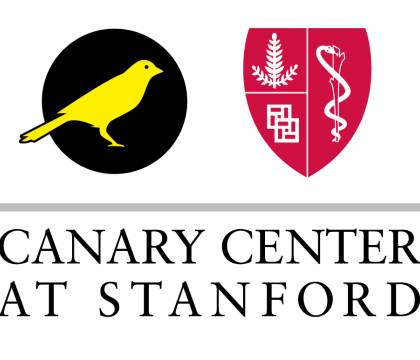CANARY — ACED GRADUATE FELLOWSHIP IN CANCER EARLY DETECTION
The Canary Center for cancer early detection will offer a 1-year graduate fellowship in collaboration with the International Alliance for Cancer Early Detection (ACED). The Canary Center at Stanford is a world-class research facility dedicated to cancer early detection programs. Our mission is to discover and implement minimally invasive diagnostic and imaging strategies for the detection and prognostication of cancers at early, curable stages. The goal of this initiative is to foster a unique interdisciplinary graduate fellowship with a cancer early detection focus combining one or multiple fields including molecular imaging, proteomics, chemistry, cell and molecular biology, and bioinformatics.
These areas include but are not limited to the following:
- New or improved Diagnostic Mechanisms, e.g., genomics, molecular diagnostics, and home/point of care diagnostics.
- Advanced Analytics, e.g., deep learning on unstructured data, integration of genomics, pathology and imaging data, and early predictive biomarkers of disease onset.
- Imaging Modalities, e.g., clinical decision support, advancement of imaging modalities, imaging quantitation, human-computer interfaces for image interaction, and image segmentation/feature extraction.
Awardees conduct their research in the laboratory of, and under the guidance of a Stanford Canary Center affiliated faculty member. Graduate students working in labs of faculty outside of the Canary Center may apply, but their PI will be required to become an affiliate member of the Center if the student is awarded.
- • New or improved Diagnostic Mechanisms, e.g., genomics, molecular diagnostics, and home/point of care diagnostics.
- • Advanced Analytics, e.g., deep learning on unstructured data, integration of genomics, pathology and imaging data, and early predictive biomarkers of disease onset.
- • Imaging Modalities, e.g., clinical decision support, advancement of imaging modalities, imaging quantitation, human-computer interfaces for image interaction, and image segmentation/feature extraction.
- Applications in response to this RFP will be solicited from Stanford graduate students who are or who will be working in the laboratory of a Stanford faculty member affiliated with the Canary Center.
- Applicants must be part of a Stanford PhD program.
- A Graduate Fellow may submit only one application.
- The award mechanism will support only the Graduate Fellow. Support for additional individuals (e.g., Investigators, Co-Investigators) is not permitted.
- Applicants are highly encouraged to participate in the ACED curriculum in addition to their Stanford home graduate program.
Proposal (2 pages)
The proposal should be presented in no more than two pages. Applicants must respond to each section (and sub-section).
Abstract and Significance
Describe the specific question that will be addressed and the technical approach that will be used
Research Plan
Background: Briefly describe the rationale behind the proposed study.
Specific Aims: Concisely state the hypothesis and the specific aims of the proposed research.
Technical Approach: Describe the experimental design, methodology, anticipated results, potential challenges, and alternative approaches.
References Cited
Applicants should provide a concise and relevant list of references cited for the proposal.
Letter of Support (1 page)
Each application must include a letter of support from the Principal Investigator (must be a Canary affiliate member) of the laboratory in which the applicant will complete the proposed research. The letter must state that the proposed work is within the scope of the research laboratory as it relates to the focus areas outlined in the RFP, that the research will be overseen by the laboratory Principal Investigator, and that the applicant will provide an annual report of the work that will be completed under this award. The letter should also describe how this award will contribute to the applicant’s career development and list any co-mentors (if applicable).
Curriculum Vitae (CV)
Applicants should provide a CV that states their education and research training, publications, and presentations. While there is no page limit for the CV, applicants are requested to be appropriately concise. This component of the application is in addition to the three pages comprising the Proposal (two pages) and the Letter of Support (one page).
Budget
A budget is not required from the applicant at the time of submission of the application.
Vertebrate Animals and/or Human Subjects
If vertebrate animals and/or human subjects will be used for the proposed work, appropriate approval from the Stanford Institutional Review Board must be obtained prior to the start of the research; documentation is not required at the time of submission of the application.
N.B. Institutional representatives: not applicable for internal funding opportunities. You do not have to submit your applications through your RPM.
The budget is fixed, so no budget needed at the time of submission.
